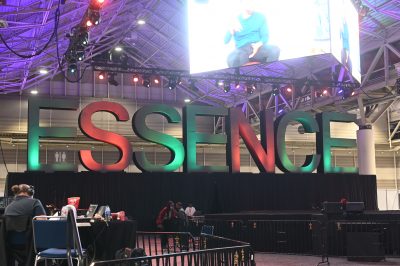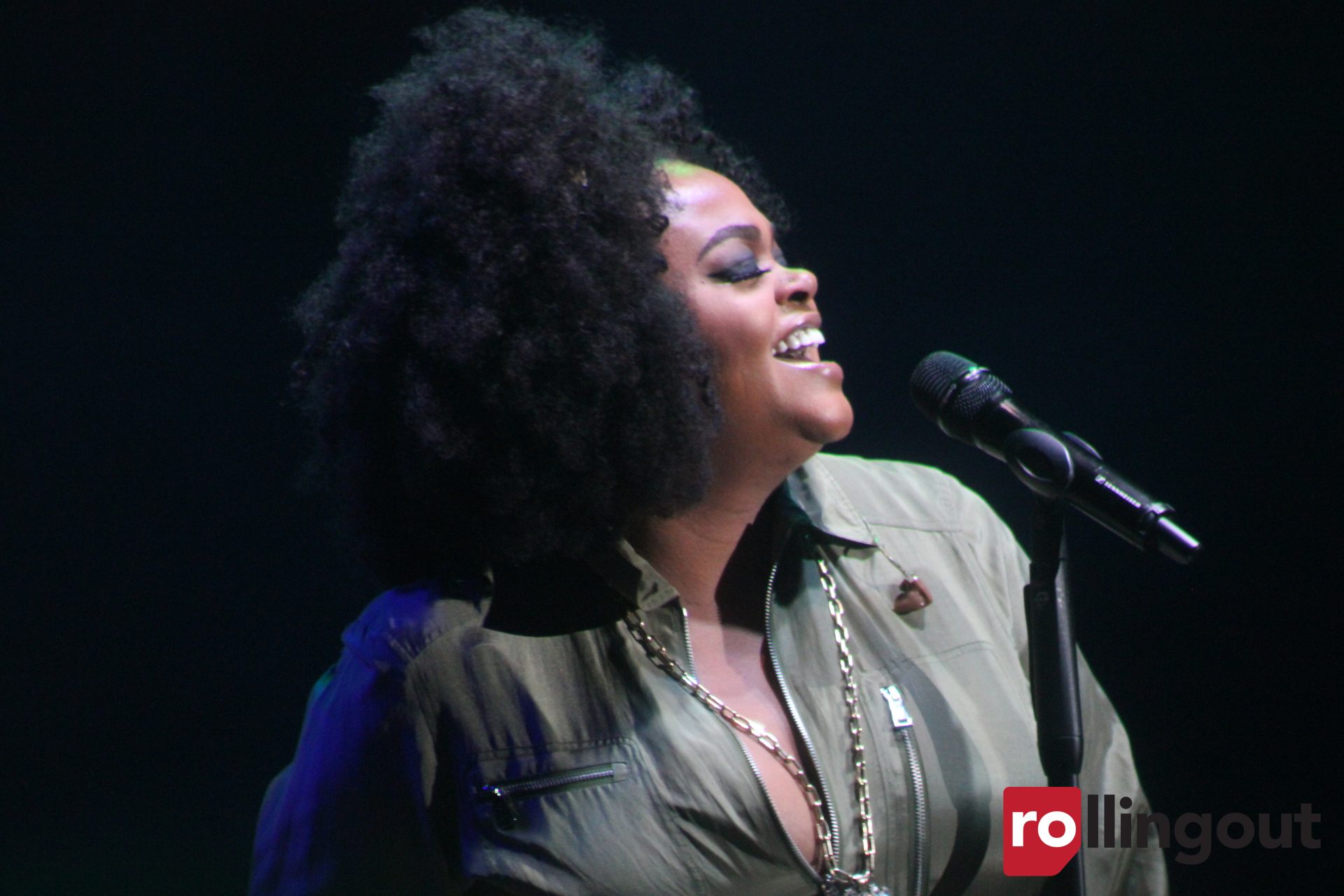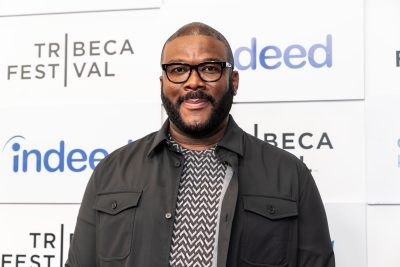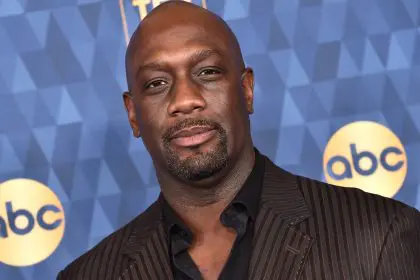 Afemo Omilami, seasoned film, television and stage actor, and chief operating officer of Atlanta’s Hosea Feed The Hungry and Homeless, has been nominated for an NAACP Image Award.
Afemo Omilami, seasoned film, television and stage actor, and chief operating officer of Atlanta’s Hosea Feed The Hungry and Homeless, has been nominated for an NAACP Image Award.
The National Association for the Advancement of Colored People (NAACP) announced Omilami was nominated for Actor in a Television Movie, Miniseries or Dramatic Special category for his role as Drum in the Lifetime Television remake of Steel Magnolias.
What was the experience like filming such a classic movie with a new twist, i.e., a black cast?
I was excited because it was telling a story about my people. It was almost like a mirror of my life. I was born into a family where the women were the leaders – my great grandmother, grandmother, mother, my aunts – they all held the family together. They took care of business. I did this for movie them; it was my way of giving back to them as strong black women. And, I could not to tell their story any better than as the character of Drum in Steel Magnolias. You have to be a strong man to let a strong woman to be all she can be. Drum allowed Queen Latifah’s character do just that. She was strong; he was strong and together they carried their family.
I was very honored and indebted to my friend, Kenny Leon, director of the remake of Steel Magnolias, for giving me an opportunity to work on this project. It was like a family reunion. I have worked with all the characters before. I worked with Queen Latifah in the movie, Mama Flora — she was my girlfriend in that movie, so I feel like I have made “progress” in our relationship elevating as her husband, Drum in the remake of Steel Magnolias. I also did a project called HoundDog with Dakota Fanning and in that movie Jill Scott played Big Mama Thornton; she also played in the original Steel Magnolias.
Why did you take this role?
Kenny Leon and I have been friends for 25 years and we have collaborated as artists on many stage projects. I wanted to work with him again. I knew the part was going to be fun, because of the original movie. Again, most of the cast members I’d worked with over the years on other projects, for example, Alfre Woodard and I starred in the film, My Funny Valentine, and actor Tory Kittles and I did Tigerland together — that was his first project. I knew I would be working with people I liked and I knew it would be a quality project.
What do you take into consideration when accepting roles?
It has to be something that’s interesting and challenges me. I also take into consideration who’s directing the movie and what other actors are involved — and is it something that I’m going to like to do. At this point in my career, it has to be something that I feel good about. After 41 years in the business, I try not to get into any project that I’m not passionate about. Had I not been a well-trained stage actor, it may have been a more difficult road to travel. I owe a lot to the stage in terms of my career because when I’m not working on film projects, I can always return to the stage. I can work on my craft and get my head straight again. It’s a mental challenge to stay faithful and committed to your career over a long period of time. There were many times I wanted to walk away from it all, because it was so uncertain but as I have shared with my wife, who is also an artist, I’ve asked her to never give me an ultimatum, because I wasn’t going to walk away from my craft.
What does acting mean to you?
Acting to me means being a minster of the truth. You have to find the truth in what you are saying and what the character means, otherwise it will come across as “acting” so you have to find the truth so people can separate you from the character. It is a privilege and honor for people to have the desire to pay their hard-earned money to come and hear you tell them a story with so many distractions – cable, television, electronics, etc. People don’t have to come and spend time with you in the theatre or the movies. That’s why it’s an honor and a privilege when people come and spend their time with you.
Who do you admire in the industry?
In the beginning of my career, I had an opportunity to grow with actors like Samuel L. Jackson, Denzel Washington, Morgan Freeman — actors like these know what it is like to stay the course over a long period of time. I admire their consistency and discipline.
I also admire new and upcoming actors. I have followed the career and progress over the years of young actors like Torry Kittle, Omar Dorsey and Nate Parker, a rising and upcoming star. In terms of directors, I’ve worked with Martin Scorsese, director of Flight and Forrest Gump; Robert Zemeckis, and of course I really admire my good friend, director Kenny Leon. Also a teacher, director and my mentor, Haile Gerima, he was the head of the drama department at Howard University. He directed the film, Sankofa, this film happened at a pivotal point in my career. We took the film on tour across the country, that film was released 22 years ago, a film very much like Django produced long before its time. The film is still available and relevant.
Finally, the man I most admire is the one who opens doors and helped me start in this business Michael Schultz. He gave me my first job in show business. He gave me my first film role in 1971 and he have me my first big staring role on Broadway. He is also credited for discovering Samuel L. Jackson, LaTanya Jackson, Clifton Davis and Bill Nunn.
Who have you mentored?
I take this business very seriously; it’s my craft,. It’s my honor to cultivate young actors interested in pursuing a career in entertainment. I have taught classes over the years. One of my most memorable moments was working with Tyler Perry early in his career. Both my wife and I helped him produce one of his first plays. I’ve been a counselor to a lot of young talent, far too many successful actors to name.
What does it mean to be nominated for an NAACP Image Award?
There is no greater honor than your own people appreciating your work and acknowledging you and your work— that means a lot. And, that the image you are portraying means something. Because the male image has been so tarnished, I am proud to represent something positive. It sends a special message especially from an organization that means so much and who have done so much over the years. I stand on the shoulders of giants like my mentor and father-in-law, the late Hosea Williams, left his footprint on his community and the world. This project dealt with black life, and to have a black audience and a black organization like the NAACP to recognize what I’ve done is a great honor.













